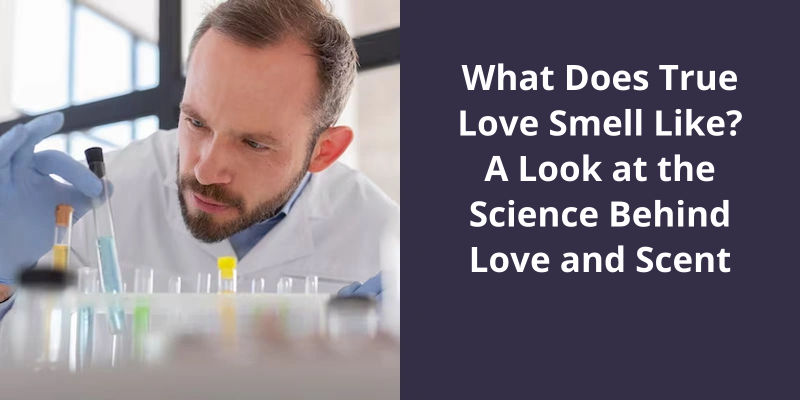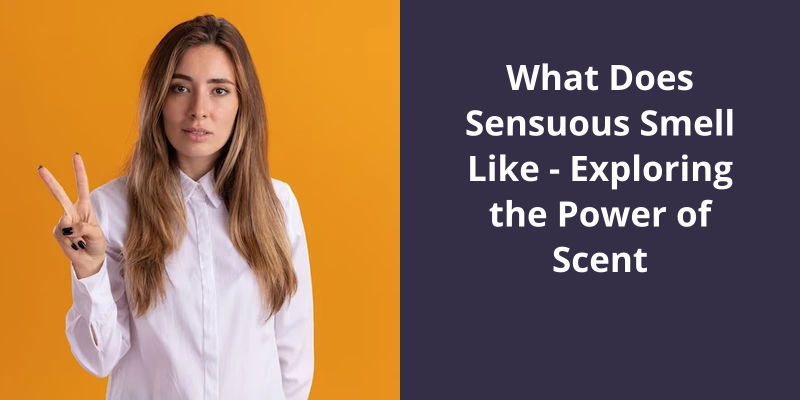Phantom smells after COVID-19 refer to a condition called Parosmia, a symptom related to a distorted sense of smell. People experiencing this phenomenon often smell foul or strange odors that aren’t actually present; this is due to the virus causing harm to the olfactory nerves responsible for our sense of smell. Post-recovery, as these nerves try to heal and recover, they might send wrong signals to your brain leading to these phantom odors. This condition is usually temporary and improves over time as the nerves recover from the infection. It’s part of what doctors call post-acute sequelae of SARS-CoV-2 infection (PASC), or post-COVID-19 conditions. However, if the phantom smells persist or cause distress, one should seek medical advice as researchers are studying various treatment approaches for it.

Should I See a Doctor for Phantom Smells?
The experience of phantom smells, also known as phantosmia, can be unsettling and frustrating to deal with. Essentially, it’s the perception of an odor that isnt actually present in your environment. While it’s not always a cause for concern, it’s worth noting that phantosmia can signal a range of medical issues that may require professional attention.
Phantosmia can occur due to sinus issues, such as inflammation or infection. It can also be a symptom of seasonal allergies, as well as colds and respiratory infections. These cases are usually temporary and can be alleviated through over-the-counter treatments or simply allowing your body to heal on it’s own.
For instance, epilepsy and stroke can cause this sensory disturbance. Additionally, Alzheimers disease is associated with phantosmia, particularly in the early stages of the disease.
If youve been experiencing phantom smells for a few weeks or longer, it’s recommended that you see a doctor. They can help determine the root cause of the odor perception and provide treatment if necessary.
When you visit a healthcare provider for phantosmia, they may ask questions about your medical history, perform a physical exam, and potentially conduct diagnostic tests. These tests may include imaging scans of your brain and sinuses or blood tests to rule out underlying conditions.
If youre experiencing phantom smells, it’s important to monitor the frequency and duration of the odors youre perceiving. Keep a journal of when the smells occur, what they smell like, and how long they last. This information can be useful for your doctor as they work to determine the underlying cause of your phantosmia.
Make an appointment with your healthcare provider if youre dealing with this issue to ensure that youre properly addressing the root cause of your phantosmia.
This change in the sense of smell may be concerning for those who’ve recovered from COVID-19. While it isn’t a common symptom and the exact cause is unknown, there are some theories and possible treatments. Here is what experts recommend for dealing with the strange smell after recovering from COVID-19.
Is It Normal to Have a Strange Smell After Recovering From Covid?
This can be a cause for concern for some individuals, as a sudden change in smell perception can indicate an underlying health condition. But, with regards to COVID-19, this is a relatively common occurrence.
It’s believed that this strange smell is a result of the virus affecting the olfactory system—the system responsible for our sense of smell. The virus can affect the receptors in the nose, causing changes to how we perceive smells. This alteration can also affect our taste buds, leading to a change in taste perception.
The good news is that this smell change typically goes away on it’s own after a few months. Patients are advised to give it some time before becoming too worried and seeking medical attention. However, it’s important to note that if other symptoms accompany the smell change, it may be prudent to consult a doctor.
It’s also worth noting that some people may not necessarily experience a complete loss of smell during the acute phase of the virus. For some, it may only be a partial loss that continues into the recovery phase and manifests as a strange smell.
Overall, experiencing a strange smell after recovering from COVID-19 isn’t uncommon. It’s important to remain vigilant and monitor any changes to your symptoms. If you’ve concerns, it’s always best to consult a medical professional for advice. Remember to continue practicing good hygiene and protecting yourself and others from the spread of the virus.
While many people with COVID-19 experience temporary loss of smell, some individuals have reported long-term loss of smell even after recovering from the virus. This is believed to be due to a neurological issue where the nerves responsible for smell regeneration in the nasal cavity are damaged and unable to regenerate properly. This long-term impact of COVID-19 on the sense of smell raises concerns for the affected individuals and highlights the need for continued research into the lasting effects of the virus.
What Causes Long Term Loss of Smell After COVID-19?
The loss of smell after COVID-19 can be a very difficult and debilitating symptom for many patients. It not only affects the ability to taste food and appreciate flavors, but it can also impact day-to-day activities such as detecting gas leaks and fires.
According to recent research on COVID-19, the virus can cause damage to the olfactory system in multiple ways. One potential explanation is that the virus attacks the nerve cells responsible for detecting smells in the nasal cavity. Over time, this can result in a loss of these cells and a reduction in overall neural activity in the olfactory bulb, which is responsible for processing scent information.
In some patients, the immune system can produce an excessive amount of cytokines, which are proteins that regulate inflammation. This excessive inflammation can lead to damage of the olfactory system and potentially result in permanent loss of smell.
What’s clear, however, is that the virus can have lasting effects on the body beyond the acute phase of the disease. As we continue to learn more about COVID-19 and it’s effects on the human body, it’s important to remain vigilant and take steps to manage symptoms and prevent further damage to the olfactory system.
However, the effectiveness of these treatments may vary depending on the individual patient and the severity of their symptoms.
As the world continues to grapple with this pandemic, it’s important to prioritize research and support for those experiencing ongoing symptoms and to remain vigilant in our efforts to prevent the spread of the virus.
Conclusion
While many people experience a complete recovery from their smell and taste impairments, some continue to suffer from lingering symptoms that can cause frustration and distress. Further research is needed to fully understand the underlying mechanisms that contribute to these sensory disruptions and to develop effective treatments for those who continue to experience them. Ultimately, by continuing to explore and address the full range of COVID-19 symptoms, we can better support individuals who’ve been impacted by this devastating pandemic.





